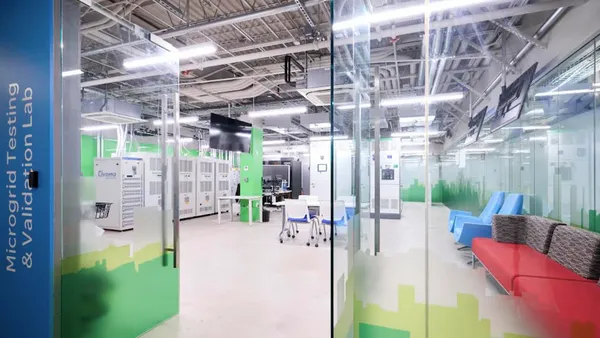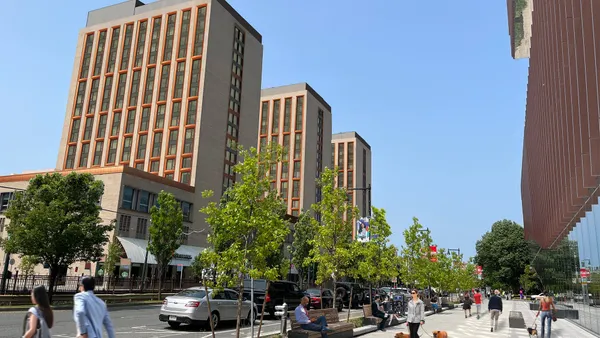Dive Brief:
- Local Memphis developer Big River Partners has proposed a $950 million, 29-acre mixed-use development called Union Row for a blighted, underused area of the city's downtown, the Daily Memphian reported. The new urban-style, walkable community, designed by LRK Architects and engineered by Kimley-Horn, would be the largest such project in Memphis history.
- Big River Partners' master plan outlines a three-phase project, the first of which would deliver 673 residential units, 200 hotel rooms, 344,000 square feet of office space, almost 54,000 square feet of retail, a 30,000-square-foot grocery store, more than 1,300 parking spaces and an elevated park. The second phase of the project would add almost 800 more residences, anther 180 hotel rooms, more than 31,000 square feet of retail and some additional parking. The third phase would bring 640 more residential units, another 4,000 square feet of office space, 11,000 square feet of retail and more parking for a total of almost 2,600 spaces. Construction of the first phase alone is expected to create more than 3,700 temporary jobs, paying approximately $206 million in total wages. The entire project is expected to generate $413 million in construction wages across more than 7,500 direct and indirect jobs.
- Big River Partners has lined up local firm Montgomery Martin Contractors to oversee construction of Union Row and has deals in place for about 65% of the development, which translates to a projected construction start date of June 2019. The developer will also propose the creation of a 20-year tax increment financing district to pay for any necessary public improvements for the project. Union Row reportedly has minority ownership and will set aside at least 28% of construction contracts for minority- and woman-owned businesses.
Dive Insight:
Sometimes navigating these projects through city and count approvals requires a Herculean effort on the part of developers, and not all are successful.
Just this month, a Chicago alderman scuttled Related Cos.' plans for a $1 billion dual-tower project on the Chicago River, arguing that the developer had not addressed constituent requests in its final submission. For example, some local residents wanted hotel and public esplanade elements to be removed, asked that the project's podium be reduced in size, requested greater security for certain areas of the development and wanted Related to include operational measures that would reduce traffic congestion.
Related did adjust its plans somewhat in response to local concerns, but not enough to win Alderman Brendan Reilly's approval. However, Reilly did note that he would revisit the project if Related chose to address the issues raised by his constituents.














